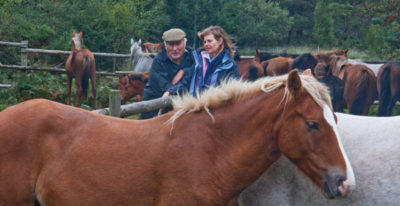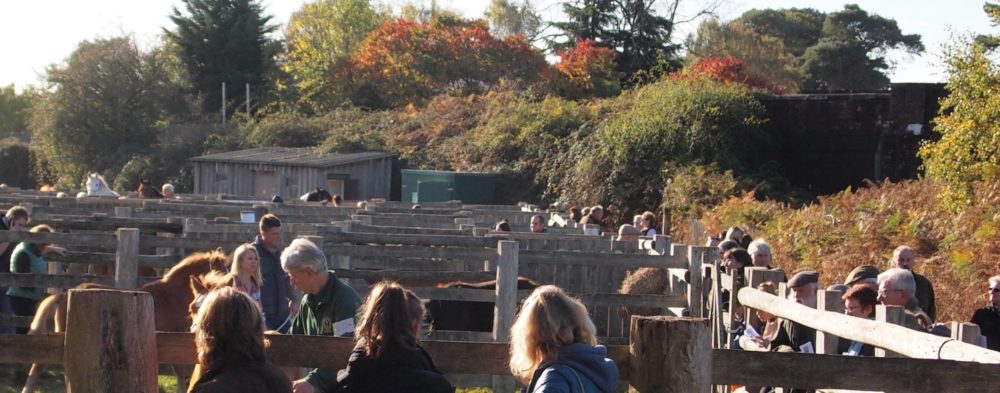Commoners
The commoning community is diverse. At its heart are several large families who have farmed in the New Forest for generations. Around them are many individuals who are equally committed to their animals and this special way of life, some of whom will be new to the Forest. Modern commoning is a vocation, fitted around everyday life and subsidised by other income. You’ll find commoners working in organisations and businesses throughout the New Forest area, whether in public services like schools and colleges, care homes, hospitals, or in farming, professions and tourism. Caring for the animals that graze the Forest has to be fitted into these normal, busy lives. A poorly animal cannot wait to be caught and taken home when necessary, at any time of day or night, and it is part of the commoners’ responsibility to help each other with these essential, and often unpredictable, tasks.
To have the right to be a commoner depends solely upon the “occupation” of a piece of land with common rights, regardless of whether this land is shared, rented or owned. Most land with rights is lost to commoning, often with the owners unaware of the rights, so the land that is still occupied by commoners is of great importance.
Commoners often work together to catch their ponies, compete against one another in the annual pony races and gather together to sell their ponies at Beaulieu Road. Commoners like their animals are ‘haunted’ in their local area. The commoning community holds a wealth of knowledge about and passion for the New Forest. Despite the challenges being faced, the continuation of commoning is vital to the survival of the New Forest, and the arrival of the 21st century brought a realisation that young commoners would need organised and direct support if the practice is to continue. Our page on young commoners provides examples of some of this crucial work.

Who Are the Commoners?
Commoners are ordinary people like you. They just have an extraordinary commitment to the New Forest that they fit around their normal busy lives. Whilst a fair number are involved in traditional rural occupations, many have ordinary jobs in the surrounding towns and cities. The culture if mutual support means that commoners look out for each others animals, as no-one can be around them all the time. Anyone can become a commoner, regardless of their background, but there is a lot to learn. It is very hard for the newcomer to adapt to keeping animals that can disappear for weeks on end, however hard you look. But by grazing so freely they are doing the essential work of maintaining the Forest. A small number of families provide the bedrock of commoning, passing down knowledge from one generation to the next and proudly committed to maintain the practice through thick and thin. The rest of us just have to keep asking questions and taking advice.
Being a commoner is like being a member of a huge family, arguing, making up and working together. At the end of the day there are more ups than downs but it’s a truly rewarding way of life. Commoners take on the responsibility to keep commoning going, to take care of the Forest, and be part of a living cultural heritage.

Members Login
 Latest Tweets
Latest Tweets
Follow us
@realnewforest 4h
Icilibus sam quas aut eriatem nume corepta auta conet officaborem quodi corepta auta conet officaborem quodi apernat ectlpa dolorpiaecus.
@realnewforest 4h
Icilibus sam quas aut eriatem nume corepta auta conet officaborem quodi corepta auta conet officaborem quodi apernat ectlpa dolorpiaecus.
@realnewforest 4h
Icilibus sam quas aut eriatem nume corepta auta conet officaborem quodi corepta auta conet officaborem quodi apernat ectlpa dolorpiaecus.
With thanks for support from




